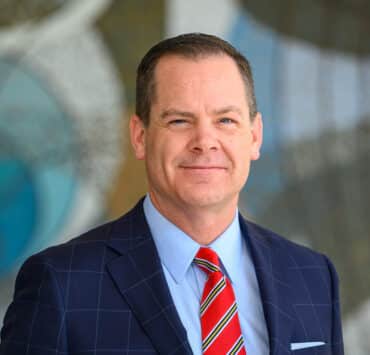|
Getting your Trinity Audio player ready...
|
As law schools push for earlier specialization, Emily Gordon is proof that a generalist can still be exactly the in-house talent companies need. The famed cosmetics and beauty organization’s counsel for litigation and global product regulatory has worked throughout her career to maximize her exposure to different kinds of legal matters—a practice that is paying off at Estée Lauder.
Gordon began her legal career at Cravath, Swaine & Moore, where she gained experience in a broad array of litigation and investigations matters, including breach of contract, securities, healthcare, and intellectual property. Her goal was to be the kind of counsel clients felt comfortable coming to, no matter the issue. Gordon brought this depth of experience and client-focused attitude with her to Estée Lauder to help build out the company’s litigation team.
“When I joined, my boss had already spent over a year building a new litigation and product regulatory function. My goal was to help her continue to grow the function and its capabilities,” Gordon explains. “The team already included three brilliant women when I arrived, so I wanted to support what they were already building while continuing to add value by bringing more work in-house, further developing our processes, and advancing existing partnerships with the business and other legal functions.”
There was only one catch to ensuring a strong team dynamic: Gordon is completely remote. She works from Denver, where she lives with her husband and two children. She meets with her colleagues in New York multiple times a year, but most of her work relies on building strong relationships remotely.
“When I joined, my boss had already spent over a year building a new litigation and product regulatory function. My goal was to help her continue to grow the function and its capabilities.”
Emily Gordon
Gordon says that finding success in a remote role requires work and investment, but it’s very possible with the right attitude and approach. As a new hire, Gordon went out of her way to listen in on calls and meetings to get a feel for the business, the people, and what it means to be an Estée Lauder employee.
“Look, there are certainly things I miss by not being in the office or by the water cooler. That’s unavoidable,” Gordon says. “But that’s why it’s so important to me to get as much exposure to our work and my colleagues as possible—whether I am dealing with the business, outside counsel, or opposing counsel, I always want to make sure I understand the issue and the background, who the key players are, and how best to tackle the problem.
“Sometimes that means joining negotiations my boss is leading to learn from her approach, and sometimes that just means meeting with business or legal stakeholders to learn more about the company and its operations. I try to get as many touch points as I can.”
When Gordon meets with colleagues, she acts like a sponge, absorbing as much as she can. That not only means learning about the business, but also about the people behind the business.
“It’s a very fast-paced environment, so I’m in constant communication with my team throughout the day. We’re talking about the work, of course, but we also find time to talk about what’s happening outside of work. We’re colleagues, but we’re people first. And I think teams function much more effectively when you make those personal connections a priority,” Gordon explains. “I also give a ton of credit to my team for making this part easy—it’s a special group.”
Gordon’s day-to-day work at a well-known, consumer-facing company with both physical and online retail outlets is varied and engaging. At any given moment, Gordon might be working on an employment-class action, a privacy litigation, a routine premises liability case, a false advertising threat, or even a securities matter. This variety is what Gordon loves about her work and why she was drawn to a generalist firm in the first place. The influx of new and interesting work allows her to interact with passionate business and legal experts who have a deep understanding of the company.
Emily Gordon
“Whether I am dealing with the business, outside counsel, or opposing counsel, I always want to make sure I understand the issue and the background, who the key players are, and how best to tackle the problem.”
Gordon says one of the keys to practicing as a generalist is to be up for anything. She has a long track record of raising her hand for work outside her areas of expertise to bolster her skill set. She credits her training at Cravath with giving her the confidence to tackle whatever questions come across her desk, and she is always willing to ask questions of those who are more knowledgeable.
“There are a million different things going on and demanding your attention at any given time, so it’s critical to triage your work and shift focus quickly when needs change,” Gordon explains. “You have to leverage available resources and utilize new technologies where practical. For example, we recently onboarded new software to help us better manage our matters and improve our data reporting.”
One assignment Gordon has down pat is being a mom. The balance can be hard, she says, but she’s learned to “shift modes” quickly, especially while working from home. “It’s important to me that my children see me as someone who loves her job and also loves being a mom.” She feels she has the best of both worlds right now, and she aims to keep it that way.



